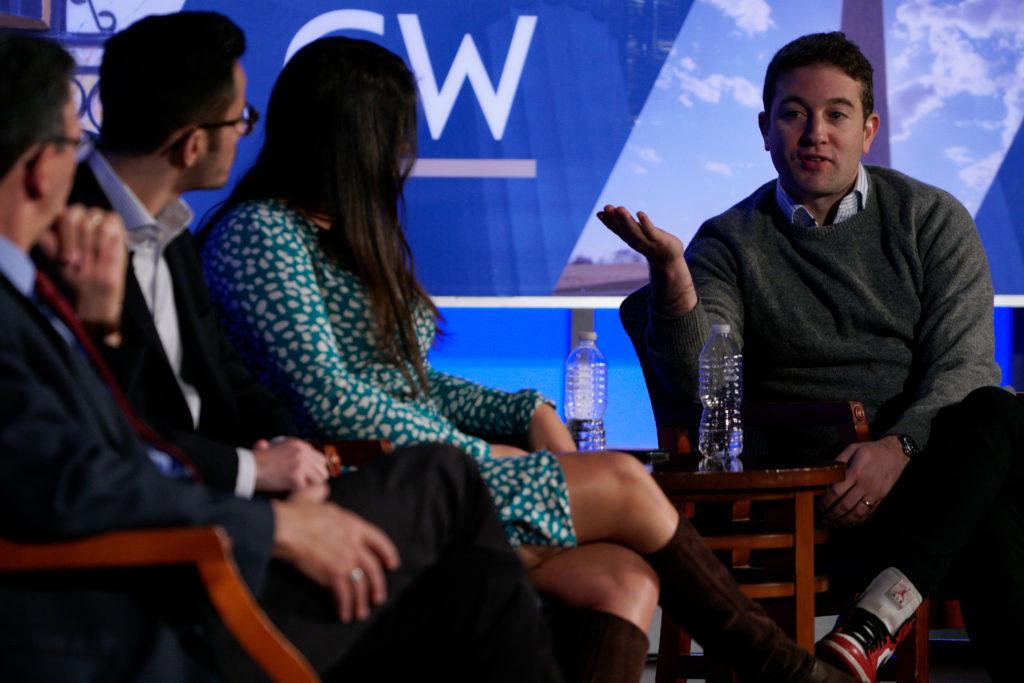A panel of alumni working in media and communications discussed the state of political discourse at the Jack Morton Auditorium Sunday.
The event, which was part of the University’s annual Colonials Weekend, was attended by alumni, parents and current students. The panel was moderated by School of Media and Public Affairs Director Frank Sesno and covered the upcoming midterm elections, partisanship and the media.
Joanna Rodriguez, who graduated in 2015 and currently serves as the communications director for Rep. Carlos Curbelo, R-Fla., said that political discourse is “broken.” She pointed to Saturday’s shooting at a synagogue in Pittsburgh and the string of bombs mailed to high-profile Democratic politicians last week as evidence of the need for societal change.
“Candidates have a very big role to play because leadership does have to start at the absolute top, but it also needs to trickle down to every single citizen and it also needs to trickle down to the media,” she said.
Rodriguez said cable news programs broadcast soundbites, or short snippets of recorded remarks, to the public more frequently than full interviews, minimizing politicians’ ability to smartly discuss policy.
“There’s only so much you can get into to actually contribute to political discourse and push this narrative that we need to do better in five minutes – and really that’s a third because the anchor has to have questions,” Rodriguez said.
Jake Sherman, the co-author of POLITICO’s Playbook, a 2008 graduate and a former Hatchet editor in chief, said that although the public continues to inquire about the media’s part in the 2016 presidential election, the decision to elect President Donald Trump was ultimately in the hands of the voters.
“It’s not something we did or didn’t do,” Sherman said. “The country elected President Trump, not by a majority. The majority of the country didn’t like him, and that’s our system.”
Sherman said the media continues to hold officials accountable by ensuring elected candidates uphold their campaign promises.
“I think the public looks at us and is being like, ‘What’s being done about this?’” he said. “Well, these are people who campaign on these specific issues and now they’re doing it. We’re writing about them.”
Andrew Desiderio, a congressional reporter for The Daily Beast who graduated in 2017, said that although political conflict receives the most coverage at his publication, there are exceptions — including his own profile of Curbelo, the Republican representative from Florida, who he interviewed for two hours.
Desiderio said his editor wanted to “elevate” Curbelo’s national profile because of Curbelo’s bipartisan work.
“The conflict sells, but we are also a publication where we like to reward the voices that are trying to bridge the partisan divides, people that are not on the extreme left or the extreme right,” he said.
Sesno concluded the event – the last installment in Colonials Weekend – by referring to himself as a “glass-half-empty optimist” who was consistently encouraged by the work of GW alumni.
“What I get to do on a daily basis is meet unbelievable inspiring people like these who start here as students and go off and really contribute and change and believe in something, and that is what our future is built on,” he said.




